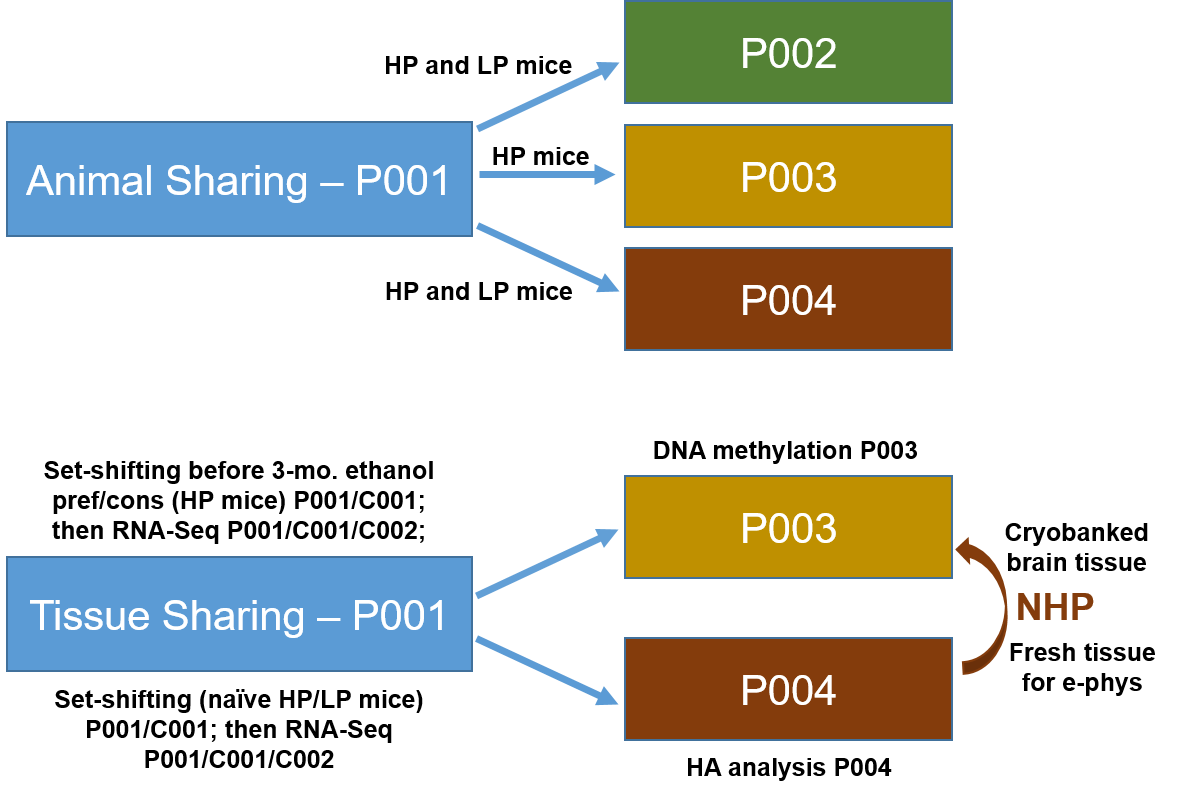Mouse Genetics: Risk and Individual Variation - Project P001

Project Lead: Tamara Phillips Richards
Co-Investigators: Robert Hitzemann, Angela Ozburn
The use of mice to study genetic risk for alcohol (ethanol) consumption and genetic factors that determine ethanol responses have been long-term strengths of the Portland Alcohol Research Center (PARC), strengths continued in this renewal. Scientific Project P001 is a continuation of a PARC project currently with Dr. Hitzemann as Lead. Based on her appropriate expertise, Dr. Richards (a.k.a., Phillips) assumes the role of Lead, as Dr. Hitzemann transitions to retirement. This project continues to use the heterogeneous stock-collaborative cross (HS-CC) mice as the founding population for selective breeding, conducted in collaboration with C001, with a key focus on individual differences in ethanol consumption that persist after selective breeding for high ethanol preference (preference and consumption are correlated at r=0.90). Dr. Ozburn, Co-I, provides expertise pertinent to the testing of treatment targets and provides resident expertise in transcriptome analysis as Dr. Hitzemann transitions away. Risk for ethanol consumption and remaining individual variation in consumption after directional selection may involve different genes and gene networks. Our studies will address this and examine new targets (from the PARC perspective) for manipulating ethanol intake that emerge from our transcriptome research. Selected line animals (HP=high preference mice; LP=low preference mice) and tissues from chronic ethanol drinking mice are shared with all other projects of the PARC, as depicted in the figure.